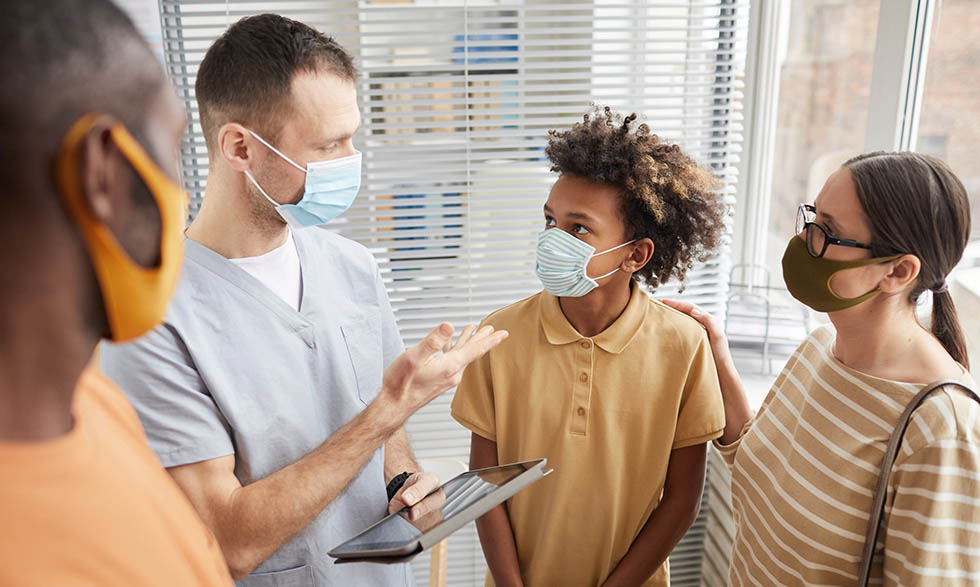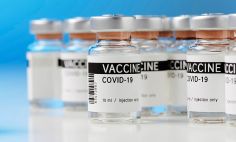Health Topics

How to protect your family from COVID-19
What you need to know about child vaccination, side effects
Though most children and teenagers have had less severe cases of COVID-19 compared with adults, they can still get sick and spread the disease to other people.
That's why COVID-19 vaccines are important for children and teens who are eligible. Currently, the Centers for Disease Control and Prevention (CDC) recommends that everyone age 12 and older be vaccinated against COVID-19. Widespread vaccination is our best hope to prevent COVID-19 from spreading.
How they work
Vaccines help us develop immunity to the virus that causes COVID-19 without needing to get the illness. By getting vaccinated, people of all ages make it harder for the virus to spread from person to person. Much of the science and research behind some of the COVID-19 vaccines started with research that began before the pandemic on other viruses, like those that cause the cold and flu.
The COVID-19 vaccine has mild, temporary side effects and does not cause COVID-19.
Current guidelines for children
Everyone in the U.S., including children who are eligible, can get a free COVID-19 vaccination, regardless of immigration or health insurance status.
Currently, all children 12 and older are permitted to get the Pfizer COVID-19 vaccine, which is a two-part vaccine series. People need both doses of this vaccine before they are considered fully vaccinated; they are also not considered fully vaccinated until 14 days after their second dose. Before your child gets their vaccination, check with your local pharmacy to see if appointments are available or if you can just walk in. Your health care provider may also offer COVID-19 vaccines.
How to prepare your child
Talk to your child about what to expect from the vaccination. Side effects such as a sore arm, injection site swelling, tiredness, and headache may affect your child's ability to do some daily activities. The effects should go away in a few days. Many people have no side effects or reactions.
The CDC does not recommend taking ibuprofen, aspirin, or acetaminophen before vaccination for the purpose of trying to prevent vaccine-related side effects. It's also good to speak with your child's health care provider if you have any questions or to confirm any potential allergies.
After the shot, expect to stay for 15 minutes. That way your child can be observed in case of a severe allergic reaction that needs medical attention, which is very rare. Additionally, the CDC has a mobile app called V-safe that lets parents report any side effects. It can also help remind you of your child's second dose timing.
Back to school this fall
Vaccines for children under 12 may be available later this year. Clinical trials are now underway in children under 12 and as young as 6 months old. These trials, many of which are supported by the National Institutes of Health, check the safety of medical treatments and vaccines before they are released to the broader public.
In the meantime, make sure your child is following the schedule for the other vaccinations your pediatrician recommends, such as measles and the flu, and that you follow the latest CDC mask or other guidelines to keep your children protected.
And as children go back to school this fall, check with your school system and local health department for the best information on the spread of COVID-19 and current prevention procedures. They could include masking and social distancing during school and extracurricular activities.
Also, make time to talk to your children about what changes to expect this school year. You may want to prepare for the possibility of virtual learning if school closes or if your child becomes exposed to COVID-19 and needs to stay home.







